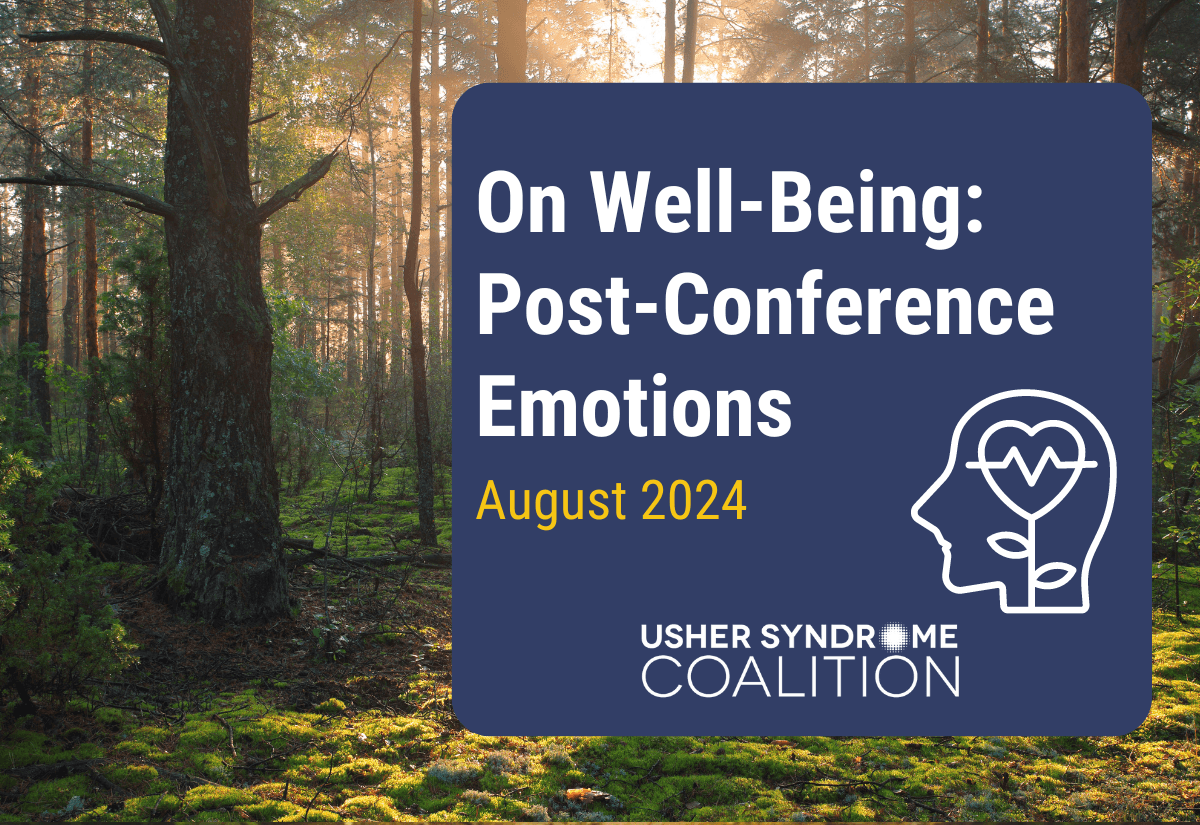
Attending the Usher Syndrome Coalition's USH Connections Conference for the first time can evoke a wide range of emotions. Participants might feel hopeful as they connect with others who share the experience of living with Usher syndrome and learn about advancements in research and treatment development. There can be a deep sense of relief in finding a community where shared experiences help to ease feelings of isolation. Many may feel empowered by discovering advocacy resources and learning strategies to manage Usher syndrome, fostering a sense of control. Hearing success stories and witnessing the resilience within the community can be incredibly inspiring. The supportive atmosphere provides comfort and reassurance. However, the wealth of information and new experiences can also feel overwhelming. Ultimately, participants may leave with a profound sense of gratitude for the opportunity to connect, learn, and share, feeling encouraged by the dedication of researchers, advocates, and others committed to improving the lives of those with Usher syndrome.
Many people are told upon receiving an Usher syndrome diagnosis that they may never meet anyone like them. However, the USH Connections Conference defies these expectations, bringing together a vibrant and diverse community. At the conference, participants meet others who have lived with their diagnosis for their entire lives, as well as those who have just recently learned of it. They encounter individuals using white canes, guide dogs, sighted guides, co-navigators, spoken language, sign language, tactile sign language, protactile, and more. The conference exemplifies true accessibility, showcasing the wide range of experiences and communication methods within the Usher syndrome community.
It can be incredibly empowering to connect with others who truly understand your experience, who "get it." At the same time, it may raise questions about the future, such as, "What will my life be like?" or "What can I do now if there aren’t yet any available treatments?" The experiences of someone who is culturally Deaf or DeafBlind may differ from those who have been encouraged to use spoken language. However, we all share a common goal of seeking connection and community, which is what makes these conferences so meaningful.
We are feeling a bit of the post-conference blues and wish we could still be with our USH Family. We’d like to use this time to remind you all of the mental health resources on our website: Mental Health Resources. You will find different ways of connecting with the community, specific mental health support resources, presentations, and our previous “Grounded in Science Newsletters.”







